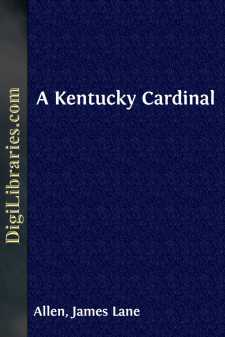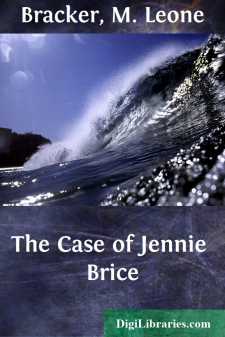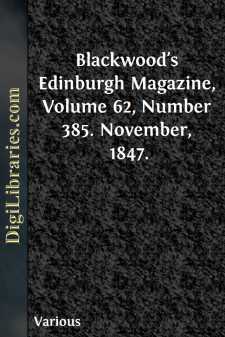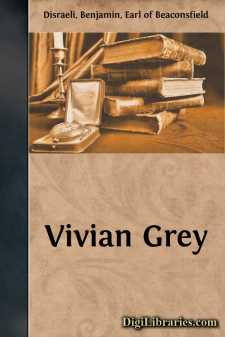Fiction
- Action & Adventure 180
- Biographical 15
- Christian 59
- Classics
- Coming of Age 5
- Contemporary Women 3
- Erotica 8
- Espionage/Intrigue 12
- Fairy Tales, Folklore & Mythology 236
- Family Life 169
- Fantasy 117
- Gay 1
- General 596
- Ghost 32
- Historical 808
- Horror 43
- Humorous 160
- Jewish 25
- Legal 4
- Medical 22
- Mystery & Detective 315
- Political 49
- Psychological 41
- Religious 64
- Romance 159
- Sagas 11
- Science Fiction 730
- Sea Stories 113
- Short Stories (single author) 537
- Sports 10
- Suspense 1
- Technological 8
- Thrillers 2
- Urban Life 31
- Visionary & Metaphysical 1
- War & Military 173
- Westerns 199
Classics Books
Sort by:
OCTOBER. FIRST DAY OF SCHOOL. Monday, 17th. To-day is the first day of school. These three months of vacation in the country have passed like a dream. This morning my mother conducted me to the Baretti schoolhouse to have me enter for the third elementary course: I was thinking of the country and went unwillingly. All the streets were swarming with boys: the two book-shops were thronged with fathers...
more...
They burned a witch in Bingham SquareLast Friday afternoon.The faggot-smoke was blacker thanThe shadows on the moon;The licking flames were strangely greenLike fox-fire on the fen ...And she who cursed the godly folkWill never curse again.They burned a witch in Bingham SquareBefore the village gate.A huswife raised a skinny handTo damn her, tense with hate.A huckster threw a jagged stone—Her pallid...
more...
by:
Ralph Bonehill
CHAPTER I FOUR LIVELY BOYS "Boys, I'm going swimming. Who is going along?" "Count me in, Snap," answered Shep Reed. "Swimming?" came from a third youth of the crowd of four. "Why, you couldn't keep me away if you tried. I've been waiting for a swim for about eleven years——-" "And a day," broke in a small, stout youth. "Don't forget the...
more...
by:
James Lane Allen
I All this New-year's Day of 1850 the sun shone cloudless but wrought no thaw. Even the landscapes of frost on the window-panes did not melt a flower, and the little trees still keep their silvery boughs arched high above the jeweled avenues. During the afternoon a lean hare limped twice across the lawn, and there was not a creature stirring to chase it. Now the night is bitter cold, with no...
more...
by:
Walter De Maris
DOWN AND OUT "I wonder who will tell her," I heard somebody say, just outside the arbour. The somebody was a woman; and the somebody else who answered was a man. "Glad it won't be me!" he replied, ungrammatically. I didn't know who these somebodies were, and I didn't much care. For the first instant the one thing I did care about was, that they should remain outside my...
more...
by:
Kirk Munroe
A WEARY RIDE. Slowly and heavily the train rumbled on through the night. It was called an express; but the year was long ago, in the early days of railroading, and what was then an express would now be considered a very slow and poky sort of a train. On this particular night too, it ran more slowly than usual, because of the condition of the track. The season was such a wet one, that even the oldest...
more...
by:
Julian Sharman
It lay in the heart of Bohemia. It was approached through a labyrinth of streets that grew denser and darker as one neared the precincts of the club. Could any of the brother Scufflers have seen the neighbourhood by day, it would have presented an appearance dismal and sordid enough. Dealers in faded wardrobes,—merchants in tinsel and rouge de théâtre,—retailers of wigs and fleshings and all...
more...
by:
M. Leone Bracker
CHAPTER I We have just had another flood, bad enough, but only a foot or two of water on the first floor. Yesterday we got the mud shoveled out of the cellar and found Peter, the spaniel that Mr. Ladley left when he "went away". The flood, and the fact that it was Mr. Ladley's dog whose body was found half buried in the basement fruit closet, brought back to me the strange events of the...
more...
by:
Various
One of the most striking, and perhaps the most intellectual advances of the age, is in the progress of geographical discovery. It is honourable to England, that this new impulse to a knowledge of the globe began with her spirit of enterprise, and it is still more honourable to her that that spirit was originally prompted by benevolence. Cook, with whose voyages this era may be regarded as originating,...
more...
CHAPTER I We are not aware that the infancy of Vivian Grey was distinguished by any extraordinary incident. The solicitude of the most affectionate of mothers, and the care of the most attentive of nurses, did their best to injure an excellent constitution. But Vivian was an only child, and these exertions were therefore excusable. For the first five years of his life, with his curly locks and his...
more...











